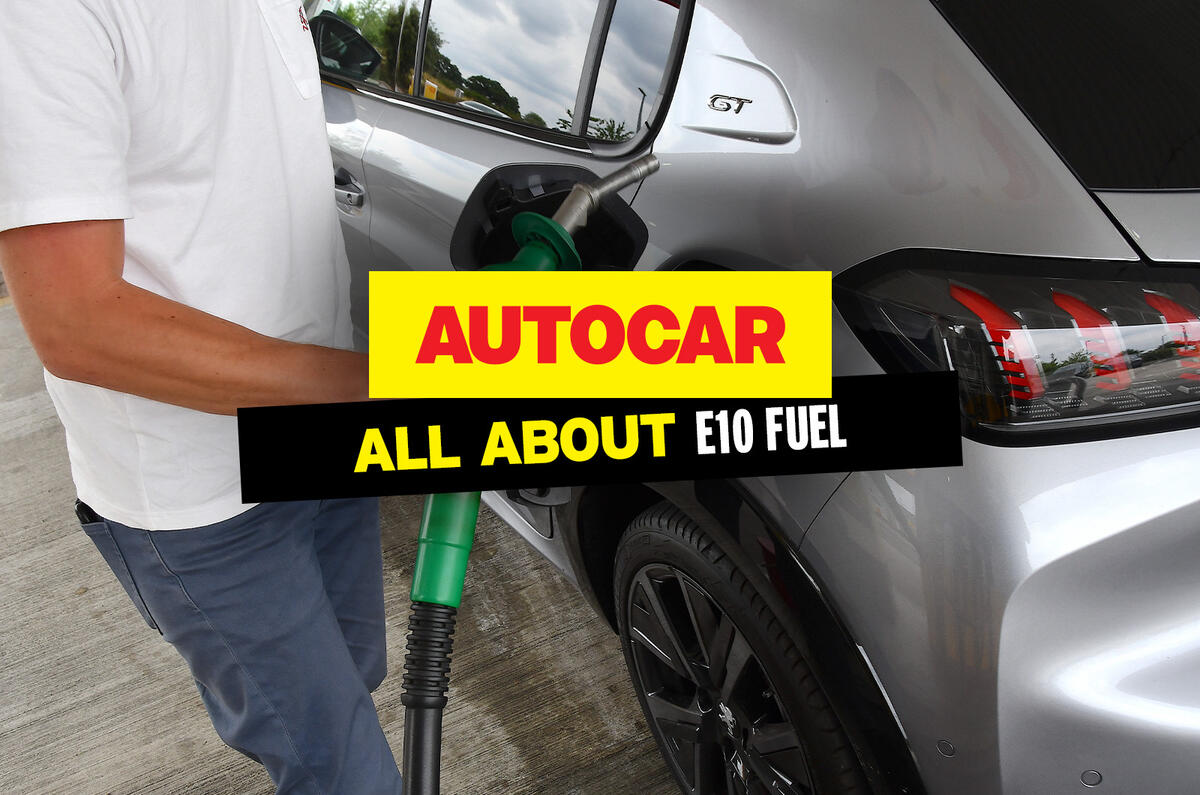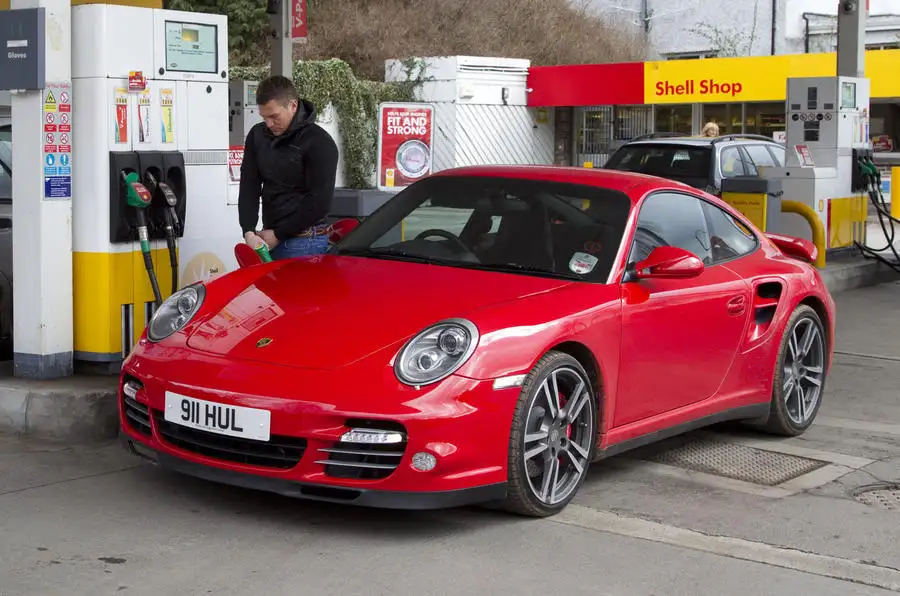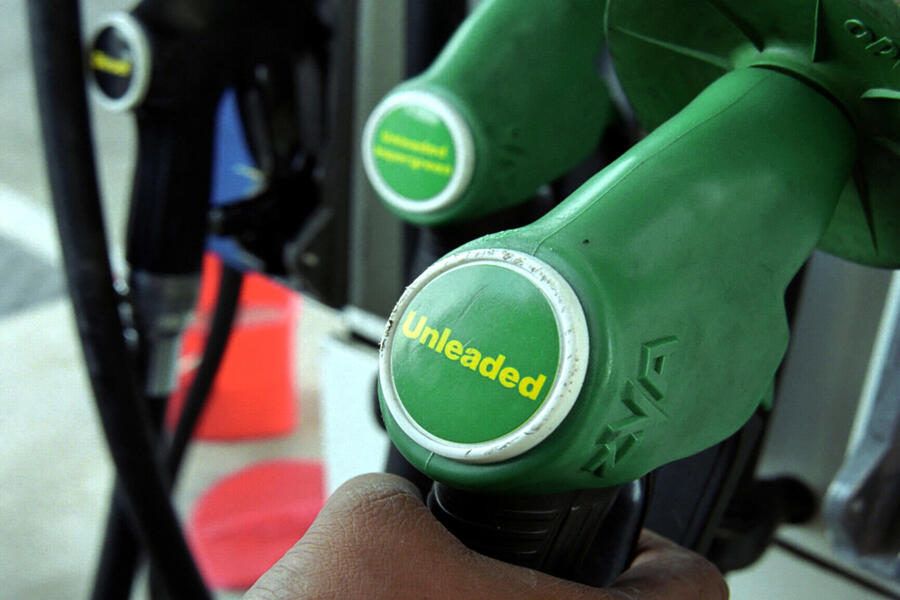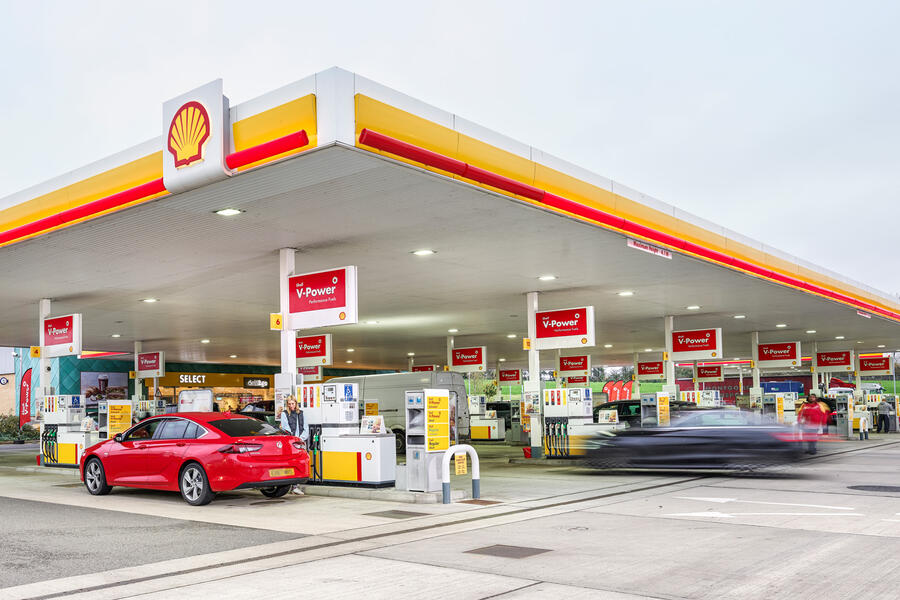The widespread adoption of E10 fuel is now long complete, with almost every forecourt across the UK dispensing it from the green pump.
It was in September 2021 that the government announced the enhanced ethanol-mix fuel would become the new standard grade of unleaded petrol across Great Britain, citing its lower CO2 emissions compared with the previous E5 blend. Northern Ireland followed suit in November 2022.
Many may not have noticed the changeover to E10 fuel, but question marks remain over its adoption – from whether your car can run on it, to whether it reduces fuel economy, if it’s okay to mix it with E5 petrol, and much more.
This comprehensive guide explains everything you need to know about E10 fuel.
What is E10?
To make conventional fuels less environmentally harmful, it was decided to blend in some renewable content such as biodiesel and ethanol. This is nothing new: it has been going on with petrol and diesel in the UK since the early 2010s.
Ethanol is an alcohol fuel produced from a range of plants, including sugar cane and grains. The upside is that, unlike regular unleaded petrol, growing the crops that make ethanol actually absorbs CO2, partially offsetting greenhouse gas emissions.
Before the introduction of E10, the standard unleaded petrol was called E5 and made up of 95% regular unleaded petrol and 5% renewable ethanol – hence the name.
Diesel remains as B7 and is made up of 7% biodiesel.
Blending renewable fuels in this way has reputedly contributed to a CO2 emissions reduction equal to taking more than a million cars off the road.
E10 was introduced to further reduce the emissions produced by petrol vehicles by doubling the amount of ethanol used to 10%.
The UK government estimated that its widespread adoption could reduce CO2 output by 2%. That might not seem like a huge amount, but as Britain moves towards a net-zero-carbon future, every little helps.
Can my car run on E10?
Most cars built in the past 20 years or should be able to run on E10, because the fuel has been widely available in other countries for years. In fact, of the roughly 30 million cars in the UK, the RAC Foundation has estimated that just over 634,000 won’t be able to use E10.
Of these, only 150,000 were built after 2000, meaning most are classic or vintage machines.
For these older cars, experts have warned that the increased ethanol content is likely to lead to issues in the long term, the most common being blocked fuel filters, damaged fuel pumps, the rapid degradation of fuel lines and corroded carburettors.
However, the government has confirmed that owners of these cars will be able to purchase less problematic E5 fuel, albeit in more expensive, higher-octane super-unleaded form.
The Petrol Retailers Association said in 2021: “E5 will still be available in five years' time, but only as the protection grade in ‘super’. It will be reviewed in five years' time.”
Should I use E5 or E10 petrol?
If your petrol car is unable to run on E10 (see above), then E5 fuel is still available, albeit in more expensive (and higher-octane) super-unleaded form.







Join the debate
Add your comment
However, the government has confirmed that owners of these cars will be able to purchase less problematic E5 fuel
Not true, this is dependent on the area you live in. There is no E5 petrol within a 40 mile round trip in this part of Cumbria, it's stopping me getting a classic car. E10 was forced onto people without any consultation
Latterly I've only been doing two three thousand miles a year so fuel cost hasn't need really a bother.
When it was only 4p a litre more I used to use it in both my modern cars, the higher mpg easier made up the cost disadavantage, but now the difference in price between e5 and e10 is so huge only my motorbike gets it.